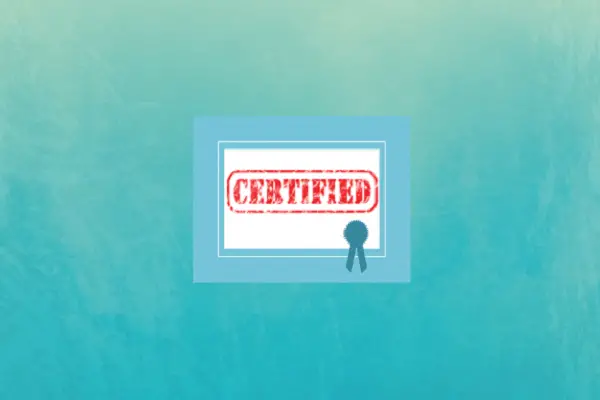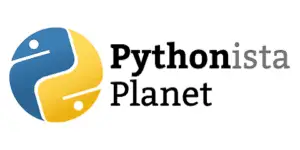As the Internet became popular, more and more content creators are emerging, especially in the field of technology. Many websites offer paid and free certifications for students.
It occurs in the offline world too, where companies sell certifications to make money. There are a plethora of online courses and certifications available for students now. And it is a great thing.
Back in the old days, there weren’t any of these resources available on the Internet, and it was difficult to learn technology.
So, should you try to get some programming certifications under your belt? Are programming certifications worth it to invest your money and time? Let’s discuss this topic in this article.
Here are my two cents about this topic. Programming certifications aren’t a big deal. Nowadays, anyone can get certifications online, and hence it has not much value. But, it’s not the case for every certification. There might be some particular certifications that could potentially land you a job.

A lot of times, certifications are meaningless. It doesn’t prove you know something. You might not know the things that you’ve certified in. However, it does mean that you’re dedicated, and you do care about things, especially if that certification is difficult to achieve.
Ultimately, you should focus on the quality of the content that you’re getting from these courses. If the content and the instructor are pretty good, then go and learn the material. Join the class not for getting the certificate, but for learning things you already don’t know.
If you focus on learning, not on that piece of paper, then it’s going to be worth spending your money and your time. Then, even if you get a certificate, that’ll be something you can proudly show everyone. If you completed the course without learning and accomplishing anything, then that certificate will be just a piece of paper.
Let me tell you an example from my own life. A few days before, I took a 100km running challenge from the runners club. So, every day, I’m going for a 5km run in the morning to complete the challenge. As of now, I covered more than 80 km (checkout my Strava profile if you’re a runner). I’ll finish the challenge within a few days and earn my medal.
If I’m running just for that medal, I can cheat on this challenge. Maybe I can track my location while I’m going on a vehicle. There are many ways to do it the wrong way. But, I won’t feel the satisfaction and pride if I cheat on this.
I have to earn this medal by running the hard yards and feeling the pain. If I only need the medal, I can go to a supermarket and buy a bunch of trophies and medals from there to show off. But I don’t want to do that.
The same thing applies in the case of doing programming courses. If you’re looking for certifications only, go and photoshop one. But, that won’t be having any value at all. I promise you.
Take an online or offline course, only if you want to learn the material in that course. Do some research and find what other people say about the course. Make sure the instructor is not a boring guy and has the knowledge to teach you.
If you do all these, and you still want to do the certification, then go ahead and do it. Learn as much as you can and apply those things practically. Then, when you get the certificate, it will not be a piece of paper. It’ll be something that can make you satisfied and proud.
Certifications vs Projects
When you apply for a job, the most significant thing in your resume shouldn’t be certifications. It should be the projects that you did. So, if you want to get a programming job, do a lot of projects in your niche ( your specific technology stack).
If you don’t have a niche, pick one, and specialize in that technology. In the technology world, specialists have more demand than generalists. You should be the big fish in the small pond.
So, here’s the rule. Projects > Certifications (in most cases).
Do long and in-depth projects that’ll churn and burn your brain. You’ll learn a lot of things while doing that. Don’t just do small and tiny projects, which everybody does.
For example, build a CRUD web application, which has the functionality to create, read, update, and delete data by using databases. Here’s another example: create a web application that can utilize some data structures or algorithms.
There are a ton of ideas to do projects, and you’ll get many if you do some brainstorming. If you don’t get any ideas, create a clone of other famous web or mobile applications.
All these online courses and certification programs may help you to learn how to do projects. So, choose a more pragmatic course rather than a theoretical one. Learn and do some pretty good projects.
There are plenty of free resources available online, and you’ll get almost everything you want to learn. There is an overwhelming amount of information out there. So, sometimes, doing a good course could help you consume the content in a structured way. It could reduce the time that you’re wasting on the things that aren’t needed.
Give more importance to the projects that you’ve done while going for an interview. Companies always want a person who can do stuff. If you have a fabulous portfolio of projects, you’ll have a high chance of getting that dream job.
Here are some of my favorite online course platforms.
There are a ton of other online platforms available on the web, and you can learn about anything under the sun.
It is exceptional to learn from the best teachers around the globe. I’ve learned a lot from these platforms, and I do have some certifications (check out my LinkedIn profile). If you want to learn something new, I highly recommend you go and take action.
If you are overwhelmed by all these resources and don’t know where to start, I’ll recommend a course. Join the Introduction to Computer Science course at edX. It is a great course to start if you’re a newbie.
Conclusion
If you want to learn to code, then find a fabulous online course and a skilled instructor that can guide you in your way. Learn the material and apply them. If you get a certificate, that’s great, keep it. But, focus on doing some good projects in your specific technology stack. That’s all I have for you today in Layman’s terms.
If you have any doubts, feel free to ask them in the comments section down below. I’ll be happy to help you. I hope you got something out of this article. If it was useful, do share this article. I would appreciate it.
Happy learning!
6 thoughts on “Are Programming Certifications Worth It?”
Leave a Reply to Amar Mishra Cancel reply
Recent Posts
Modular programming is a software design technique that emphasizes separating the functionality of a program into independent, interchangeable modules. In this tutorial, let's understand what modular...
While Flask provides the essentials to get a web application up and running, it doesn't force anything upon the developer. This means that many features aren't included in the core framework....


Wow! Great article it is. Would you like to do a guest posting for my website? Please contact me at: diksha.ojha@ucertify.com
Cheers.
So I paid around5k for a web development course and I’ll be getting 7 certificates in it…I loved the courses and how they teach…but after reading this I feel like my certificates are worthless can you enlighten me a little?
It is great that you are getting 7 certificates. But the ultimate aim of doing a course should be gaining skills. I hope you have gained web development skills from that course. If you can build web applications with the skills that you have gained from the course, then it’s awesome.
Will projects be provided in the online courses ? Or I’ll have to get it else where
Some courses have projects that you can build by watching tutorials, some may not. Please do your own due diligence before buying any course.